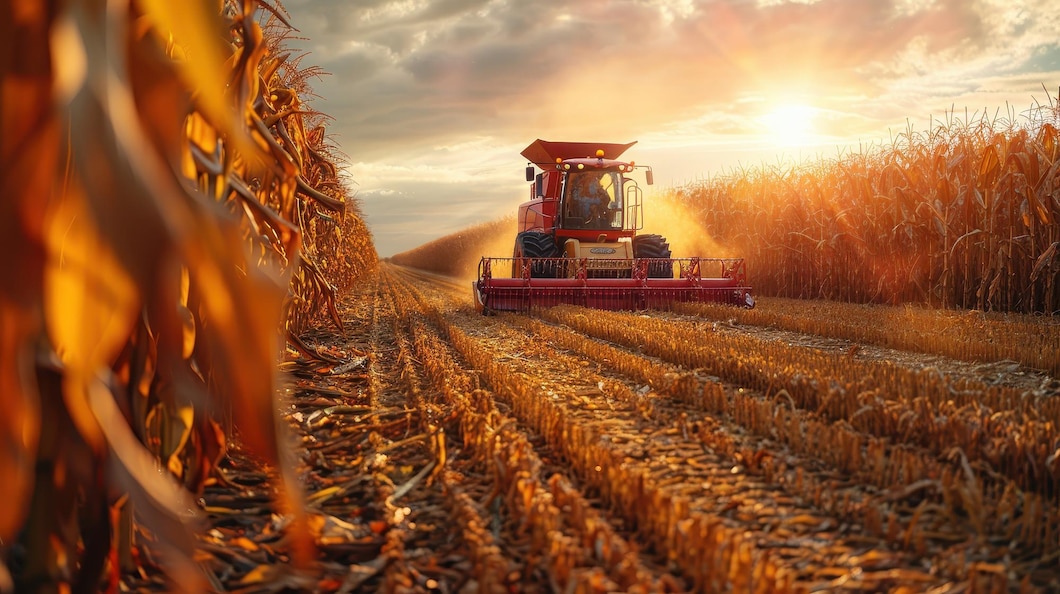The agriculture sector in Turkey is a vital component of the nation’s economy, accounting for a significant portion of employment, food production, and exports. As the global demand for sustainable and efficient food production increases, the need for innovation and modernization in agriculture becomes even more pressing. In this context, Turkey’s agricultural sector stands at a crossroads, balancing traditional farming methods with the need for cutting-edge technologies to ensure long-term sustainability and competitiveness.
UBC Holding, one of Turkey’s leading conglomerates, has recognized this pressing need for transformation and has actively contributed to modernizing agriculture in Turkey. Through its investments in advanced agricultural technologies, sustainable farming practices, and supply chain enhancements, UBC Holding is playing a pivotal role in shaping the future of the agriculture sector in Turkey.
This article explores the various ways UBC Holding is contributing to the modernization of Turkey’s agricultural sector, delves into the challenges the sector faces, and highlights the opportunities that lie ahead for the country’s farmers, businesses, and consumers.
The Importance of Modernizing Turkey’s Agricultural Sector
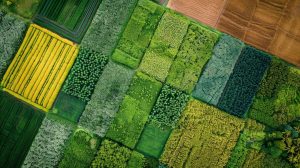
The agriculture sector in Turkey has traditionally been one of the pillars of the country’s economy. It provides employment to nearly 20% of the population and contributes significantly to national exports. However, like many other sectors, agriculture in Turkey is facing challenges that require immediate attention and strategic solutions. These challenges include climate change, population growth, water scarcity, and a growing demand for food security. To meet these demands, modernizing agriculture has become imperative.
Modernizing agriculture not only means implementing new technologies but also ensuring sustainability, efficiency, and scalability in farming practices. By doing so, Turkey can ensure that its agricultural sector remains competitive on the global stage, secures its food supply, and meets the changing dietary needs of its growing population.
UBC Holding has taken on the challenge of modernizing agriculture in Turkey by investing in technological innovations, supporting sustainable farming practices, and enhancing the agricultural supply chain. Their efforts aim to create a more resilient and future-proof agricultural industry that can sustain the demands of the 21st century.
The Current State of the Agriculture Sector in Turkey
To fully understand the need for modernizing agriculture in Turkey, it’s important to take stock of the sector’s current state. The agriculture sector in Turkey has a diverse production base, ranging from crops like wheat, barley, and cotton to fruits, vegetables, and livestock. However, despite its potential, the sector faces several issues that hinder its growth and sustainability:
1. Aging Infrastructure and Farming Techniques
One of the major challenges in the agriculture sector in Turkey is the reliance on outdated farming techniques and infrastructure. Many farms still use traditional, labor-intensive methods that result in lower yields and inefficiencies. Additionally, irrigation systems and other infrastructure are often inefficient, leading to unnecessary water waste—an especially concerning issue in a region where water scarcity is becoming increasingly problematic.
2. Small-Scale Farming and Land Fragmentation
Turkey’s agricultural landscape is characterized by small-scale farms, with many farmers working on plots of land that are fragmented and scattered across different regions. This land fragmentation makes it difficult for farmers to scale up production or invest in modern equipment, further limiting their ability to compete with larger, more efficient operations.
3. Environmental Challenges
Climate change has brought about new environmental challenges for the agriculture sector in Turkey. Increased temperatures, erratic rainfall, and droughts have made farming more unpredictable. In response, the sector needs to adopt new farming techniques that are resilient to these environmental changes.
4. Limited Access to Technology and Innovation
While technology is revolutionizing agriculture worldwide, many Turkish farmers have limited access to modern tools and technologies that could help them improve efficiency, increase yields, and reduce costs. This lack of access is a major barrier to modernizing agriculture in the country.
UBC Holding’s Commitment to Modernizing Agriculture
Recognizing the need to address these challenges, UBC Holding has taken a proactive approach to modernizing agriculture in Turkey. Their efforts focus on several key areas, including technological innovation, sustainability, and the development of a robust supply chain.
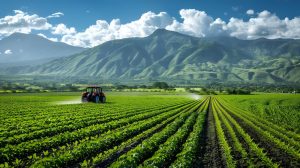
1. Investment in Agricultural Technology
UBC Holding has made significant investments in agricultural technologies that can revolutionize the agriculture sector in Turkey. These technologies include precision farming tools, data analytics platforms, and advanced irrigation systems that allow farmers to optimize their use of resources.
- Precision Farming: UBC Holding supports the adoption of precision farming technologies that use satellite data, drones, and sensors to monitor crop health, soil conditions, and weather patterns in real-time. This data allows farmers to make more informed decisions about planting, irrigation, and fertilization, leading to higher yields and reduced waste.
- Automation and Robotics: UBC Holding is also investing in automation and robotics to increase efficiency and reduce labor costs in farming. Automated machinery such as tractors, drones for pesticide application, and robotic harvesters are being introduced to help farmers manage their fields more effectively.
- Smart Irrigation: Water management is a critical issue in Turkey’s agricultural sector. UBC Holding has partnered with tech companies to introduce smart irrigation systems that use real-time data to determine the optimal amount of water required for crops. These systems help conserve water and reduce the environmental impact of farming.
2. Promoting Sustainable Agriculture Practices
UBC Holding’s efforts to modernize agriculture are also rooted in sustainability. The company understands that for Turkey’s agricultural sector to thrive in the long term, it must adopt farming practices that minimize environmental harm and preserve natural resources.
- Organic Farming: UBC Holding is promoting organic farming methods that reduce the reliance on chemical pesticides and fertilizers. By encouraging farmers to adopt organic practices, the company is helping to protect the environment while also catering to the growing demand for organic products both in Turkey and international markets.
- Regenerative Agriculture: Regenerative agriculture, which focuses on restoring soil health and biodiversity, is another area where UBC Holding is leading the charge. The company is working with farmers to implement regenerative practices such as crop rotation, cover cropping, and reduced tillage to improve soil fertility and sequester carbon.
- Sustainable Livestock Management: In addition to crop farming, UBC Holding is also working to improve the sustainability of livestock farming in Turkey. This includes promoting better grazing practices, improving animal welfare, and reducing greenhouse gas emissions from livestock operations.
3. Enhancing the Agricultural Supply Chain
Modernizing the agriculture sector in Turkey isn’t just about improving on-farm practices; it also involves creating a more efficient and resilient supply chain. UBC Holding has invested in infrastructure and logistics to streamline the movement of agricultural products from farm to market.
- Cold Chain Logistics: To reduce food waste and improve the quality of perishable products, UBC Holding has invested in cold chain logistics systems. These systems ensure that fruits, vegetables, and other perishable goods are stored and transported at the optimal temperature, preserving their freshness and nutritional value.
- Digital Platforms for Farmers: UBC القابضة has developed digital platforms that connect farmers with buyers, suppliers, and financial institutions. These platforms provide farmers with access to real-time market data, allowing them to make more informed decisions about when and where to sell their products.
The Role of Innovation in the Future of Turkey’s Agriculture Sector
As UBC Holding continues its efforts to modernize agriculture, innovation will be the driving force behind the future of the agriculture sector in Turkey. The following key innovations are expected to shape the future of farming in Turkey and ensure that the sector remains competitive on the global stage.
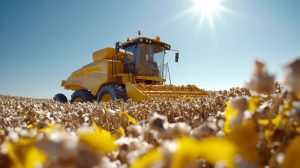
1. Artificial Intelligence and Machine Learning
Artificial intelligence (AI) and machine learning are becoming increasingly important tools for modern farmers. These technologies can analyze vast amounts of data to help farmers predict crop yields, identify pests and diseases, and optimize resource use. UBC Holding is working with tech companies to integrate AI-powered solutions into Turkey’s agricultural sector, helping farmers improve their efficiency and profitability.
2. Vertical Farming and Urban Agriculture
As urbanization increases in Turkey, there is a growing interest in vertical farming and urban agriculture. These innovative farming methods allow food to be grown in controlled environments within cities, reducing the need for long supply chains and ensuring that fresh produce is available to urban populations. UBC القابضة is exploring opportunities in this space and investing in vertical farming technologies that can help feed Turkey’s rapidly growing cities.
3. Blockchain for Supply Chain Transparency
Blockchain technology is being used to improve transparency and traceability in agricultural supply chains. UBC Holding is piloting blockchain projects that allow consumers to trace the origins of their food, ensuring that it has been produced sustainably and ethically. This increased transparency is expected to boost consumer confidence in Turkish agricultural products and open up new markets for the country’s farmers.
4. Genetic Engineering and Biotechnology
Genetic engineering and biotechnology offer the potential to create crops that are more resistant to diseases, pests, and environmental stresses. UBC Holding is supporting research in this area, working with scientists to develop new crop varieties that can thrive in Turkey’s changing climate. These innovations are expected to play a key role in the modernization of Turkey’s agricultural sector.
Challenges Facing the Modernization of Turkey’s Agriculture Sector
While there are many opportunities for modernizing agriculture in Turkey, there are also several challenges that must be addressed to ensure the success of these efforts.
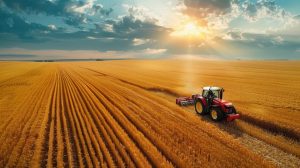
1. Access to Capital and Resources
One of the biggest barriers to modernizing agriculture in Turkey is the limited access to capital and resources for small-scale farmers. Many farmers lack the financial means to invest in modern equipment, technologies, and infrastructure. UBC Holding is working to address this issue by offering financing options and partnerships that enable farmers to access the resources they need to modernize their operations.
2. Education and Training
Modern farming techniques require specialized knowledge and skills that many Turkish farmers do not currently possess. UBC Holding is investing in education and training programs to help farmers learn how to use new technologies and adopt sustainable practices. These programs are designed to empower farmers and ensure that they are equipped to thrive in the modern agricultural landscape.
3. Regulatory Challenges
The regulatory environment in Turkey can be complex, and certain policies may hinder the adoption of innovative farming technologies. UBC Holding is working with government officials and industry stakeholders to advocate for policies that support modernizing agriculture and promote innovation in the sector.
Conclusion
The modernization of the agriculture sector in Turkey is not just an option—it is a necessity. With the country facing numerous challenges such as climate change, population growth, and global competition, modernizing agriculture is essential to ensure food security, economic growth, and environmental sustainability.
UBC Holding’s leadership in modernizing agriculture is setting the stage for a brighter future for Turkey’s agricultural sector. By investing in technology, promoting sustainable practices, and enhancing the agricultural supply chain, UBC Holding is helping to transform the way Turkey farms, ensuring that the country’s agricultural sector remains competitive and resilient for generations to come.
The future of the agriculture sector in Turkey depends on continued innovation, collaboration, and investment. With UBC Holding leading the charge, Turkey is well on its way to becoming a global leader in modern, sustainable agriculture. As the country navigates the challenges and opportunities ahead, modernizing agriculture will be key to unlocking the full potential of Turkey’s agricultural industry and securing its place in the global food economy.
